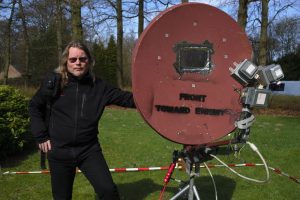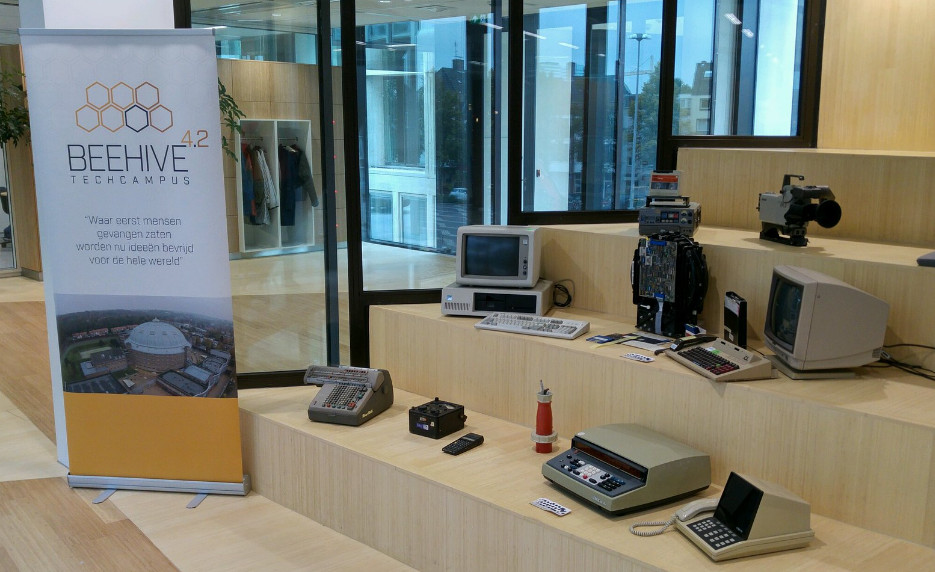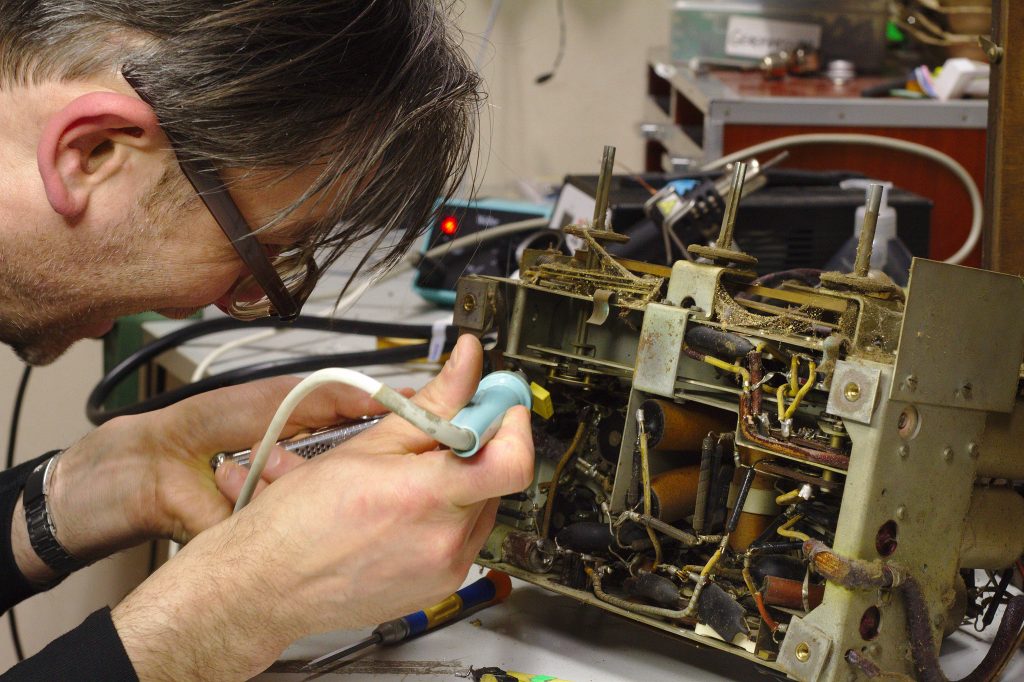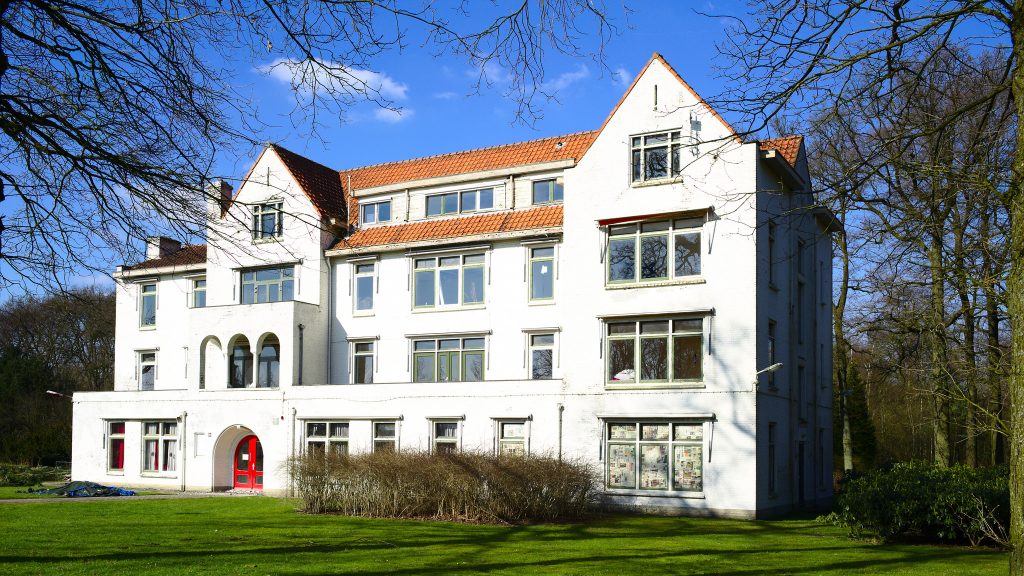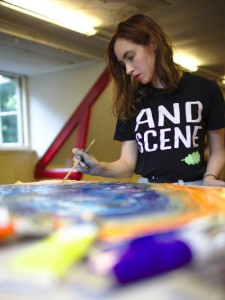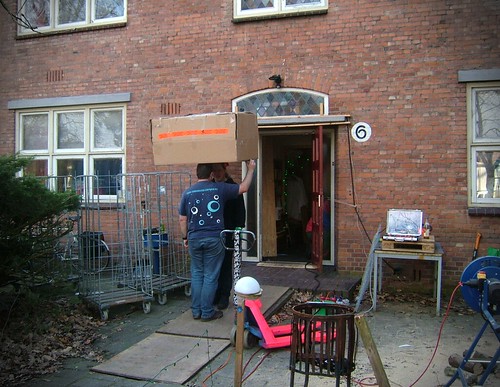A controversial project that currently pops up all over the Internet: that’s Orville, the Catcopter. Orville is a quadrocopter with the skin of a cat, he was conceived and built by the artist Bart Jansen, who, when his beloved cat died after a traffic accident, decided to give him a second life. In this second life Orville can do what he could never do in the first: take to the air, chasing after the birds.
For the technical side of the project, he had the support of a participant of Hack42: Ardinges. We asked him a few questions to get some more insight into the background of the project.
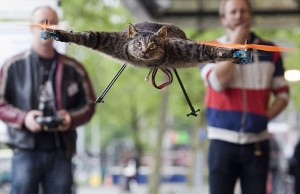
Orville in flight
Pictured from left to right: Ardinges, Orville, Bart Jansen.
Photo: Cris Toala Olivares / Reuters, with kind permission, thank you!
Ardinges, you’ve worked on the project by Bart Janssen: Orville the Catcopter. What was your contribution?
I am responsible for the technology. Because I’ve been working with radiographic helicopters for a few years now (not toys, but seriously high power stuff) I was asked by Bart to participate in this project.
Without thinking twice, I said yes.
Bart built the Orvillecopter, I then got him adjusted and calibrated. But when at last the skin of Orville was fitted over the polyester body, the Orvillecopter was too heavy to be able to lift its own weight, and he could not really fly.
We then ordered new electronics in Hong Kong (based on my recommendations). These I fitted in, soldered, adjusted etc., set the gyroscopes and soon initial test flights were made, as can be seen on Youtube and other world media. Roughly speaking, this modification amounts to a doubling of power and better stabilization electronics.
Since flying with the Orvillecopter proved quite difficult, and I get along well with RC helicopters, I’m also so far the pilot of the Orvillecopter. A special experience.
How did the collaboration with the creator of the project, the artist Bart Jansen, go?
We get along well together and we’re on the same page. Not hindered by dogmas or subjective judgments. In recent weeks we’ve also been acting as a duo in the media. This, too, is a very nice experience!
So together we laugh a lot.
What was the biggest challenge that you came across durubg the project, and how did you overcome it?
The biggest challenge was to get Orville to fly well, despite his relatively high weight for a quadcopter, and his asymmetric mass.
First, good preconditions needed to be set up; after that the electronics could be ordered. Eventually I was able to retain the original engines, and simply pumped more power into them by increasing the voltage (from 12V to 16V), and by fitting heavier controls (from 17A to 30A per motor) for the engines.
The project has, besides a technical side, certainly an emotional one too.
How do you look at that? You own a cat. Have you ever found it hard?
No. Orville has led a good life, and has been killed in a collision with a, probably ugly Japanese, car. Bart had already decided after a period of mourning that Orville had to get a second life. I loved the idea, though I must admit that for my own cat I probably would not want this. I consider the Orvillecopter not to be living, dead or morbid, but as a piece of technology with a cat leather skin.
In other words: with someone else’s cat, to which I have no emotional attachment, I don’t find it troublesome.
What would you say to people who oppose to the project on emotional grounds?
Look at yourself. You wear leather shoes, are sitting on a leather couch and eat meat, without even wondering if the cow or pig in question has had a good life.
Orville has had a wonderful life, and always wanted to chase the birds and to fly, and this we have achieved. The Orvillecopter was created out of love.
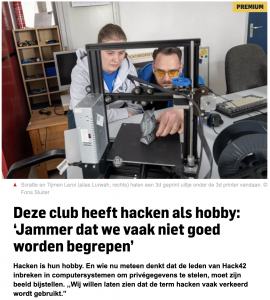

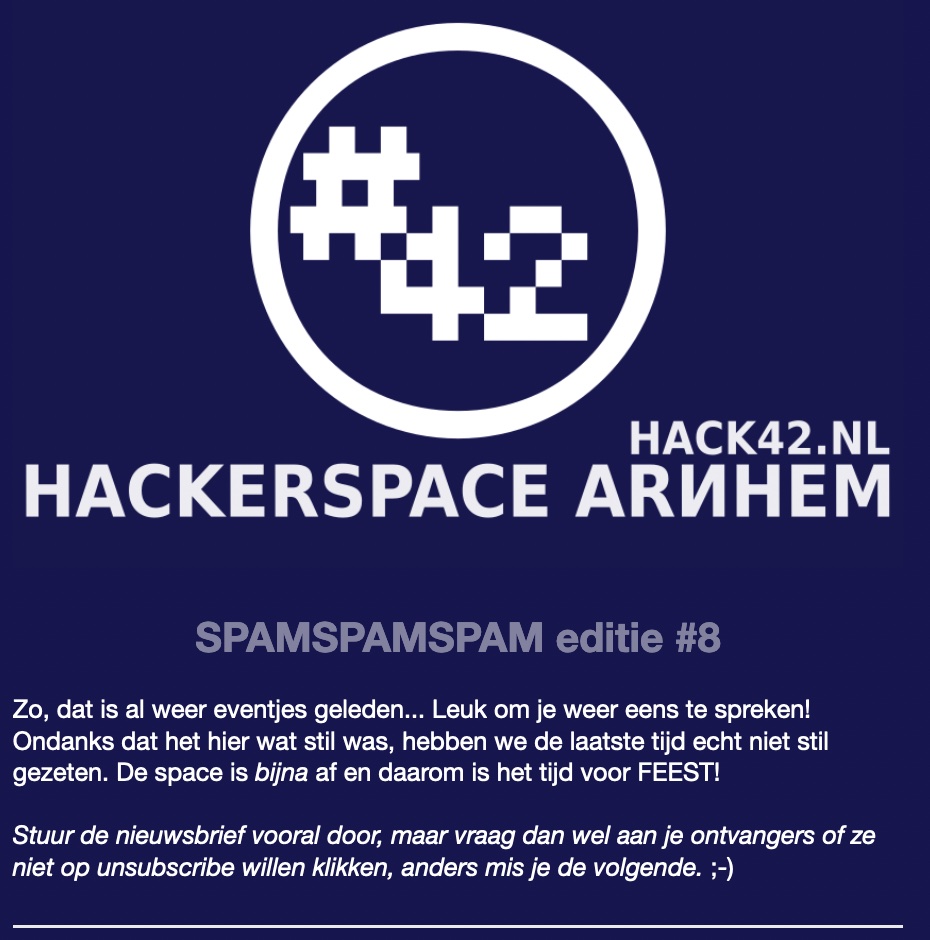
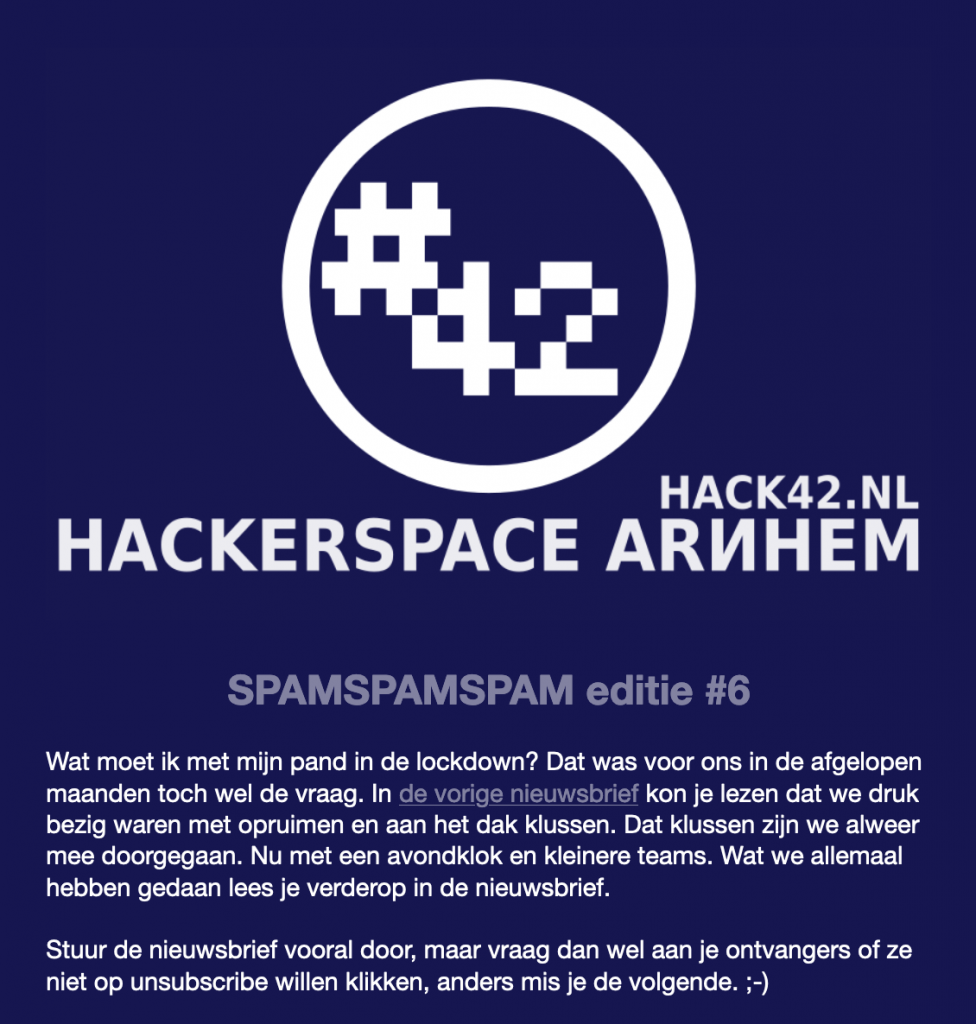



 CRYPTOLEAKS is gebaseerd op bijna driehonderd pagina’s aan geheime documenten van de Amerikaanse inlichtingendienst CIA en de Duitse Bundesnachrichtendienst. Journalist Peter F. Müller kreeg de documenten in handen en deed samen met journalisten van het
CRYPTOLEAKS is gebaseerd op bijna driehonderd pagina’s aan geheime documenten van de Amerikaanse inlichtingendienst CIA en de Duitse Bundesnachrichtendienst. Journalist Peter F. Müller kreeg de documenten in handen en deed samen met journalisten van het  (and possibly as many as five or six) foreign countries.” From 1970 on, the CIA and its code-breaking sibling, the National Security Agency, controlled nearly every aspect of Crypto’s operations — presiding with their German partners over hiring decisions, designing its technology, sabotaging its algorithms and directing its sales targets. Then, the U.S. and West German spies sat back and listened.”
(and possibly as many as five or six) foreign countries.” From 1970 on, the CIA and its code-breaking sibling, the National Security Agency, controlled nearly every aspect of Crypto’s operations — presiding with their German partners over hiring decisions, designing its technology, sabotaging its algorithms and directing its sales targets. Then, the U.S. and West German spies sat back and listened.”